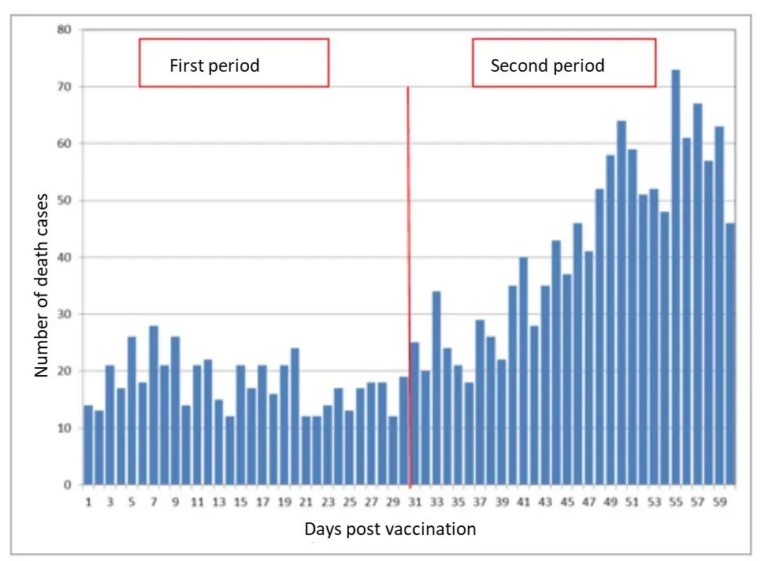Federal Court Rules Against FDA Over Anti-Ivermectin Posts

The U.S. FDA likely overstepped its authority when it told Americans to “stop” using ivermectin against COVID-19, a federal court ruled.
A federal court ruled on September 1 that the Food and Drug Administration (FDA) likely overstepped its authority when it told Americans to “stop” using ivermectin against COVID-19.
“FDA can inform, but it has identified no authority allowing it to recommend consumers’stop’ taking medicine,” wrote U.S. Circuit Judge Don Willett in his decision.
Under the Federal Food, Drug, and Cosmetic Act, the FDA has the authority to communicate information to consumers.
During the COVID-19 pandemic, the FDA issued a number of statements discouraging people from using ivermectin to combat the virus.
In one social media post, accompanied by a horse image and a link to an FDA webpage on ivermectin, the agency wrote: “You are not a horse. You’re not a calf. Seriously, you guys. “Put a stop to it.”
The page to which it is linked is titled “Why You Should Not Use Ivermectin to Treat or Prevent COVID-19.”
Three doctors filed a lawsuit against the FDA over its ivermectin statements, claiming that the agency cannot advise doctors on which drugs to prescribe.
The agency has approved ivermectin as an antiparasitic drug for both humans and animals.
With a few exceptions, federal law grants the government immunity from legal action. When an official acts outside of their authority, this is known as ultra vires. According to an earlier court ruling, plaintiffs challenging the acts must show that the official was “acting ‘without any authority whatever,’ or without any ‘colorable basis for the exercise of authority.”
The parties agree that the FDA has the authority to share data and facts. They disagree, however, on whether the FDA can make recommendations on medical issues such as treatments.
The FDA has claimed that the posts are not advice, stating in one brief that they are “informational statements” that “do not ‘direct’ consumers, or anyone else, to do or refrain from doing anything.” Simultaneously, the FDA acknowledged that the statements “provided recommendations” and “advise[d] consumers.”
“Despite these concessions, FDA never points to any authority that allows it to issue recommendations or give medical advice,” the judge wrote in his ruling.
“Rather, the FDA claims that some posts included a link to the update.” In turn, the update advises customers to ‘[t]alk to your health care provider.’ However, not all of the social media posts contained such a link. And even for those posts that did include a link, the posts themselves offer advice, not mere information.”
The update itself is problematic because of its title, “Why You Should Not Use Ivermectin to Treat or Prevent COVID-19,” the judge said. Even though it later says that people can take ivermectin if prescribed by a health care provider, “the trailing qualifier does not lessen the opening instruction’s imperative character,” he said.
U.S. District Judge Jeffrey Brown ruled against the doctors in 2022, finding that doctors had not proven an exception to sovereign immunity and that there was no indication the FDA acted outside of the authority conferred by the Federal Food, Drug, and Cosmetic Act.
Judge Brown erred on the second point as well, according to the new ruling.
“Nothing in the Act’s plain text authorizes FDA to issue medical advice or recommendations,” the court said.
The judge, who sits on the U.S. Court of Appeals for the Fifth Circuit, was joined by U.S. Circuit Judges Edith Brown Clement and Jennifer Walker Elrod.
Judges Willett and Brown were appointed under President Donald Trump. Judges Clement and Elrod were appointed under President George W. Bush.
The appeals court panel remanded the case back to Judge Brown to decide on whether the doctors have standing. The decision came after the panel heard oral arguments.
One of the plaintiffs, Dr. Robert Apter, called the decision “a big win for doctors and patients!”
“This case has broad implications for protecting the practice of medicine from unlawful interference by the FDA,” said Jared Kelson, a Boyden Gray attorney who represents the plaintiffs. “It’s about making sure that federal agencies only act within their statutory authority.” The FDA has crossed a fine line here.”
The US government has yet to respond to the ruling.






